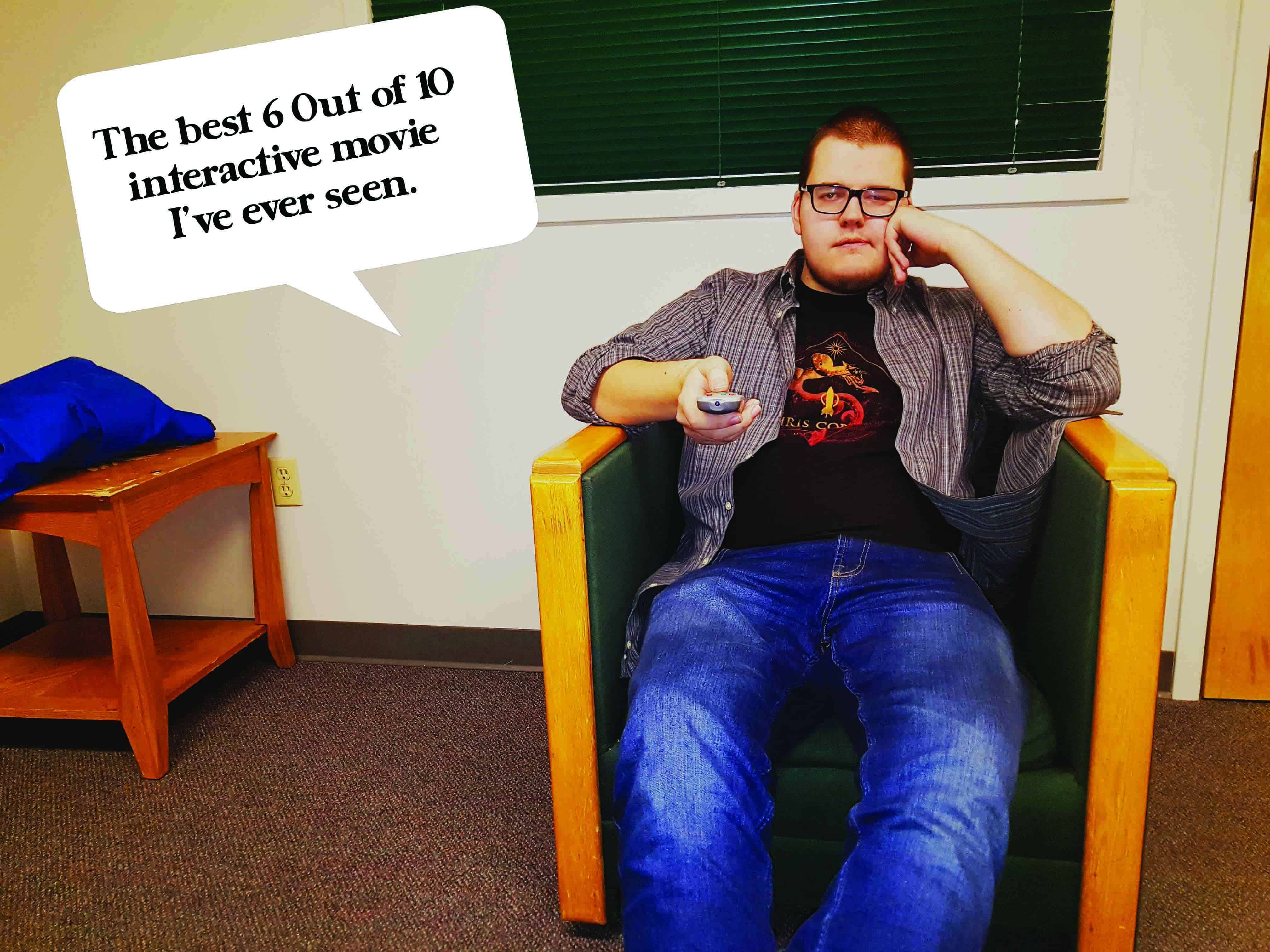Netflix’s Black Mirror Goes Interactive

author: quinn bell | a&c writer

That’s one sad looking man / Jeremy Davis
Interactive media is as soul crushing as it seems
2018 was a plentiful year for Netflix entertainment, bringing us big new hits like Queer Eye and To All the Boys I’ve Loved Before, fun short series like Maniac, and anticipated new seasons of our old favourites like Orange is the New Black. As if the year wasn’t successful enough for the online streaming giant, Netflix released a whopper on Dec. 28 — Black Mirror: Bandersnatch. A great way to ring in the new year, the series has been trending online since its release.
While a new episode of the popular and chilling series is reason enough to celebrate, Bandersnatch is something different: it’s interactive. That is to say, the viewer is in control of how the story should unfold, being prompted to make decisions as the film progresses. This means that there are multiple endings available, and that everyone’s experience is (at least slightly) different.
This isn’t Netflix’s first foray into interactive television, but it is the first made for adults. An interactive episode of Puss in Boots was released in June 2017, where the viewer leads Puss through an adventure with various villains, in an attempt to escape an enchanted storybook.
Bandersnatch is obviously much more perverse than Puss in Boots and, in typical Black Mirror fashion, the stakes are much higher. With only ten seconds to make a decision when prompted (cued by eerie 80s synth pop, of course), the interactive format makes you edgy and nervous. The funny lines spoken by the insightful character Colin before certain decisions (things like “Totally up to you, don’t feel pressured”) do not help either! And, apart from some mundane decisions like whether to eat Sugar Puffs or Frosted Flakes for breakfast, the decisions tend to include options like “kill him.” That’s on the lighter side.
Gamers are likely to think they’d be comfortable with making these kinds of decisions, but Bandersnatch messes with you, intentionally making you squirm as the film goes on. As the protagonist slips further and further into a psychologically dissociative and anxious state, your decisions feel creepier and creepier — especially as you realize that it’s you and your sick choices that are making him ill.
You will feel guilty, you will feel like a creep, but the film will keep pushing you to make decisions nonetheless. The creators may even be steering your choices, egging you on toward more exciting and immoral routes, to murder and destruction. Make an ethical or ordinary decision and characters may respond with “Well, I imagine that’s a bit anticlimactic for you, isn’t it?” or even “Why would anyone want to watch your life for entertainment?”
Chances are, you won’t make the “nice” choice very often. Going back to the origins of interactive cinema, there’s evidence that we’re just programmed for violent fantasy. The first interactive film was called Kinoautomat, presented first at Expo ‘67 in Montreal at the Czechoslovakian pavilion. Kinoautomat — a dark comedy — was paused eight times during its screening; a moderator would then come on stage and ask the audience a yes or no question, and they would press the corresponding red or green button at their seat. The choices made were overwhelmingly in favour of higher action, sex, and violence. It would be interesting to see if Netflix also keeps track of our decisions, today.
Interactive television is a cool idea, but should we really have to make tough, panicked decisions while all we want to do is escape responsibility and binge-watch Netflix? Decision-making can be hard enough in the real world; imagine now having to make choices on behalf of a beloved character. What if someone you love gets hurt? Would we be able to restart? Would it ever be possible to make a sequel that makes sense? Having a say in how our favourite series unfold would be a lot of power, and we all know what Uncle Ben has to say about great power.
At the same time, Bandersnatch leads me to believe that maybe there aren’t really any choices at all. We could be free from responsibility. Are we all just like Pac-Man, taking turns left and right until we escape the maze — only to find ourselves thrown back in it at the other side of the screen? Do we even have the free will to choose which way to turn? Help me out, Philosophy department! Do our decisions actually have consequences? Is everything we do predetermined, be it by God or by genetics, or by a chain of causation from all previous decisions? Or, perhaps, by the government?
The makers of Kinoautomat thought of that back in 1967. Their interactive film had another twist: no matter what decisions the audience made, the story ended the same way: with an apartment on fire. Democracy was utterly useless, the vote powerless to stop what was coming. This is kind of a powerful statement, coming from a socialist Soviet state.
Alright, it’s the beginning of the semester, so that’s more than enough big thinking for now. If you’re looking to wake up your brain a bit before Winter 2019 gets going, go check out Bandersnatch soon. Then read about it on Reddit and go rewatch it a few more times, taking different paths, seeing new endings and finding all the hidden treasures along the way. You won’t know if you like it unless you make the choice to participate. Go on, hit the green button…









